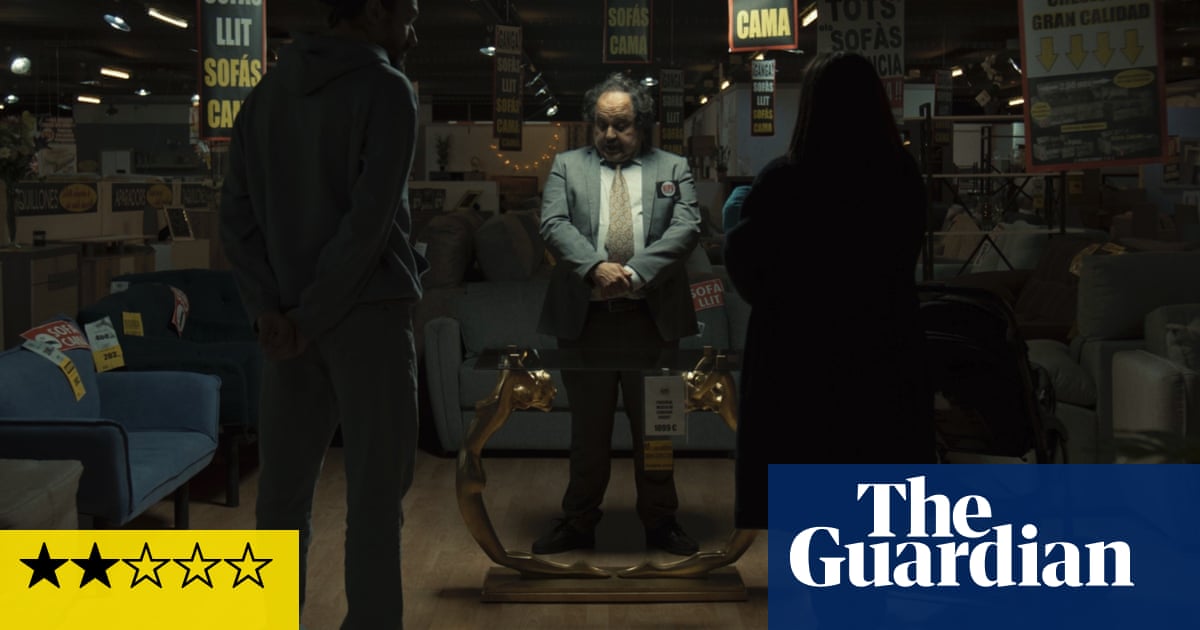
Exhausted new parents Jesús (David Pareja) and María (Estefanía de los Santos) are looking for something to tie their front room together. But in the furniture shop, when an unctuous salesman (Eduardo Antuña) suggests the “famous” Rörret coffee table – glass top, held aloft by two golden nymphs, a snip at €1,099 – old tensions emerge. Jesús is smitten; María thinks it’s a tacky abomination. She gets to choose everything, he says – even forcing him to have kids, and also dictating their son’s name, Cayetano. “A shoddy name for a fascist bullfighter,” he says. The salesman, who shares the moniker, is put out.
The worst happens; they buy the table. Actually, that’s not the worst: it’s what occurs, involving the table, when María heads out to buy supplies for a dinner with Jesús’s brother. The film (Caye Casas’s second) suddenly veers from what at first looks like Quentin Dupieux-style retro absurdism to something much more pointed: a scabrous exploration of how far black comedy can be stretched.
It seems there are limits. The incident is so appalling that Casas’s acid-etched comedy of manners can only survive as long as the characters are oblivious. And of course one of them isn’t, so the film flips between Jesús nervily deferring the truth, and humour-free PTSD transmissions from inside his noggin in a horror-film vein. The monumentally inappropriate interruptions – like Cayetano the salesman returning with a missing screw, or the 13-year-old neighbour (Gala Flores), who thinks Jesús is in love with her – are sharp. But with Casas handling the transitions with the finesse of a DJ beat-juggling breeze blocks, the two tones grate. The dissonant farce sours the closer atrocity gets; in turn, it continually short-circuits the tension of Jesús’s impending terror.
Nothing should be beyond the bounds of comedy, of course – and there is a kind of audacity in how far Casas tries to push it, and a train wreck appeal in seeing whether he and Jesús can stick the landing. But even a director as astute as David Lynch had to take a sidestep into metaphor to render taboo palatable in Eraserhead, which brooded over similar parental anxieties. Casas has an undeniable nose for middle-class peccadilloes, but tone is everything.
Source: theguardian.com



















